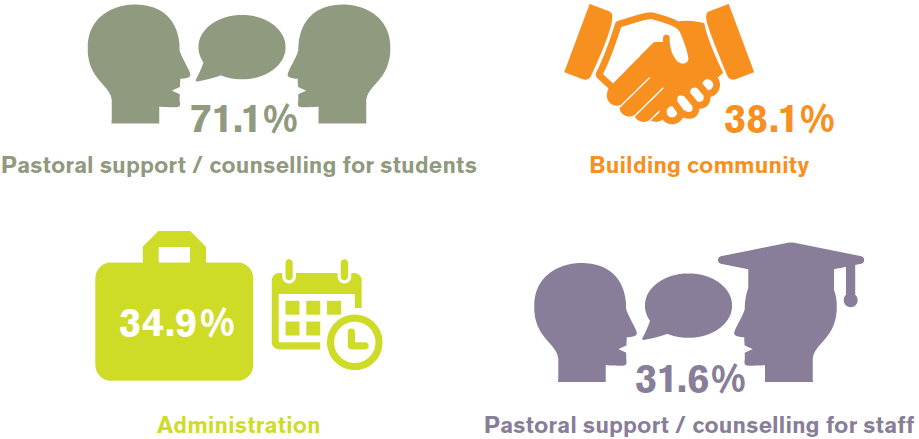Who chaplains work with, and what they do in practice, largely reflects their main aims (pastoral and religious). Pastoral and religious activities are a major part of their work. They spend most time on pastoral activities such as one-to-one support and counselling for students and staff, with a secondary priority being religious activities such as conducting religious services and running inter-faith events. They spend much time on administration, and a very significant amount of time fulfilling their aim of ‘presence’, through building a sense of community in the chaplaincy and wider university. ‘Being there’ is manifested in such things as running weekly lunches and being available to chat over a cup of tea with whoever might come into the chaplaincy space. ‘Being there’ and offering hospitality depends in many cases on having a chaplaincy space in which to welcome students and staff, a space that can be crafted to be a welcoming environment for all who might enter.
Which four activities do chaplains spend the most time on? (%)

Chaplains work first and foremost with students of their own religious tradition, supporting religious student societies, and running spiritual development activities such as religious discussion groups or meditation, but they work with other student groups too, particularly with non-religious students, international students and students of a range of faith and belief positions. For international students this might involve English language support or trips to places of interest, while for non-religious students it might involve providing a listening ear. With staff, chaplains work both in a pastoral capacity, and alongside them as colleagues in the student welfare support structure, staff managed by a senior member of student services or fellow members of, for instance, university equality and diversity committees. Religious services convened by chaplains bring their student and staff constituencies together. Christian chaplains work with a wider range of people than non-Christian chaplains; the latter tend to focus primarily, given their limited time, on working with students from their own tradition, creating a bridge also to local religious communities.
